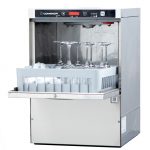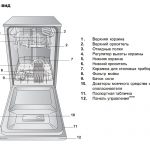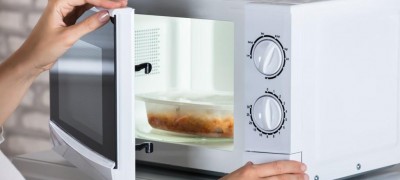How the dishwasher works
Familiarity with the principle of the dishwasher is important for the equipment to serve efficiently and for a long time. Without going into technical details, it is enough to understand the purpose of the basic elements and what functions they perform.
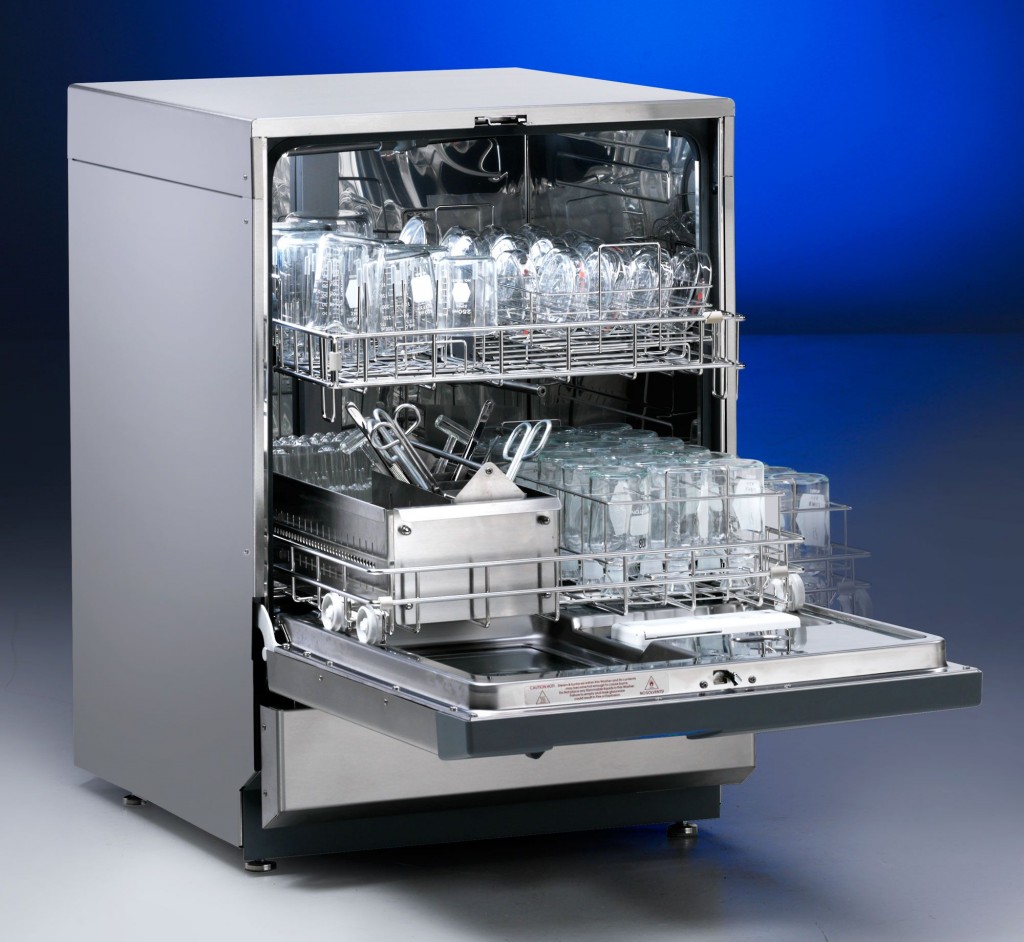
How does a dishwasher work and how does it work?
Why do you need a dishwasher
A dishwasher in everyday life saves the owners from routine work. Sorting, washing, rinsing, drying dishes and cups was completely taken over by household appliances. If earlier it seemed like an overkill for lazy housewives, today such an assistant is extremely necessary in everyday life.
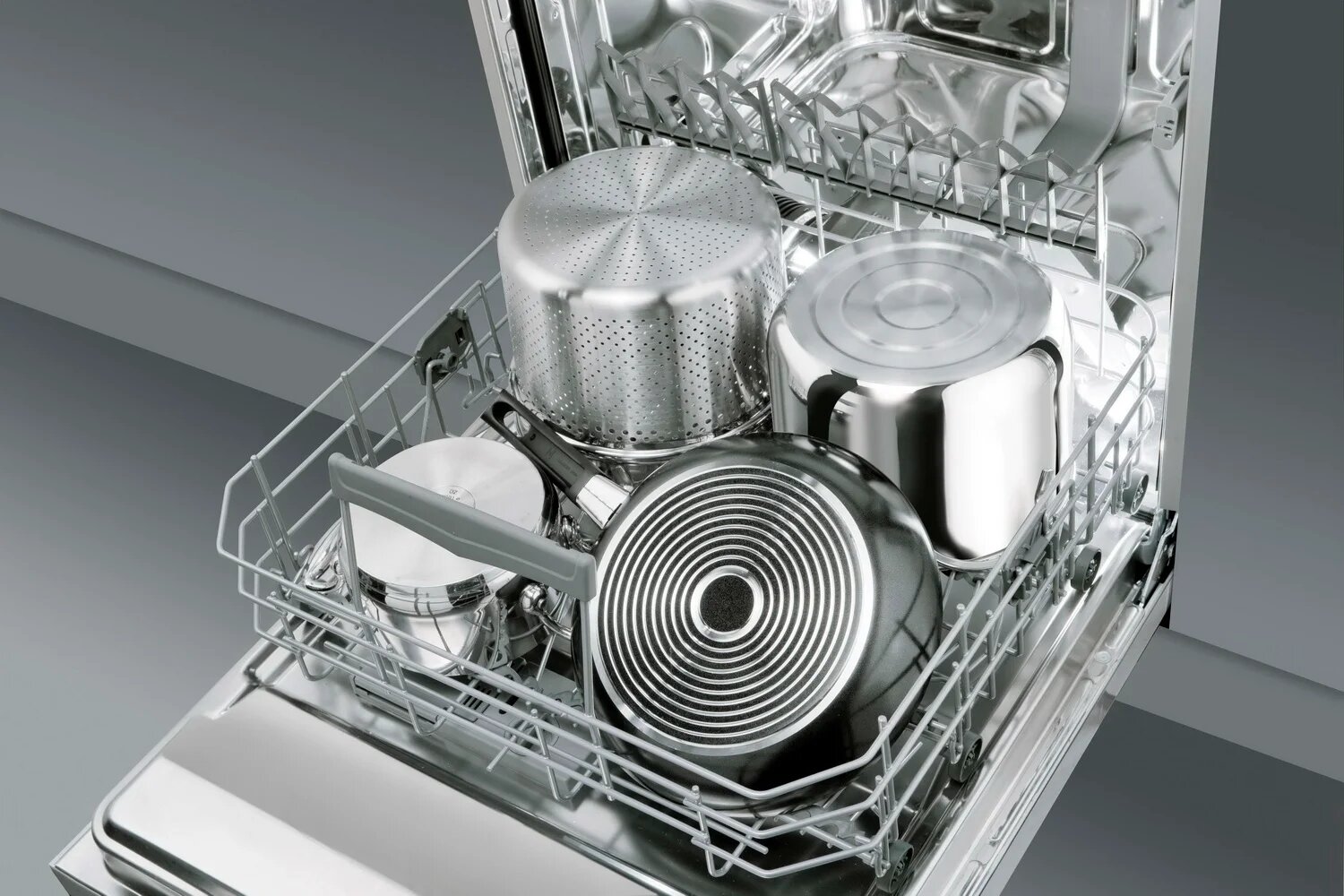
- This is a significant water saving, especially when the family is large and leaves behind a lot of dirty dishes. Water will be used up much more if you wash one plate after another and then waste the water rinsing. While the dishwasher washes all the dishes at once in one complete cycle and uses no more than 11 liters.
- Saving energy is also a plus in favor of purchasing cleaning equipment. Electricity is spent imperceptibly when washing dishes by hand: lights on in the kitchen, a working boiler, the presence of additional light sources.
- You free up time for rest or other business.
- In the dishwasher, kitchen utensils are washed more professionally and efficiently. No other person can wash large volumes of plates and glasses so cleanly.
- You will not get worried and discouraged by inviting many guests to the party. Now household appliances can easily cope with a mountain of dirty dishes.
- The dishwasher not only cleans, but also disinfects the dishes, kills the majority of harmful microorganisms. This is important if you have a lot of baby dishes, breast milk bottles or cups.
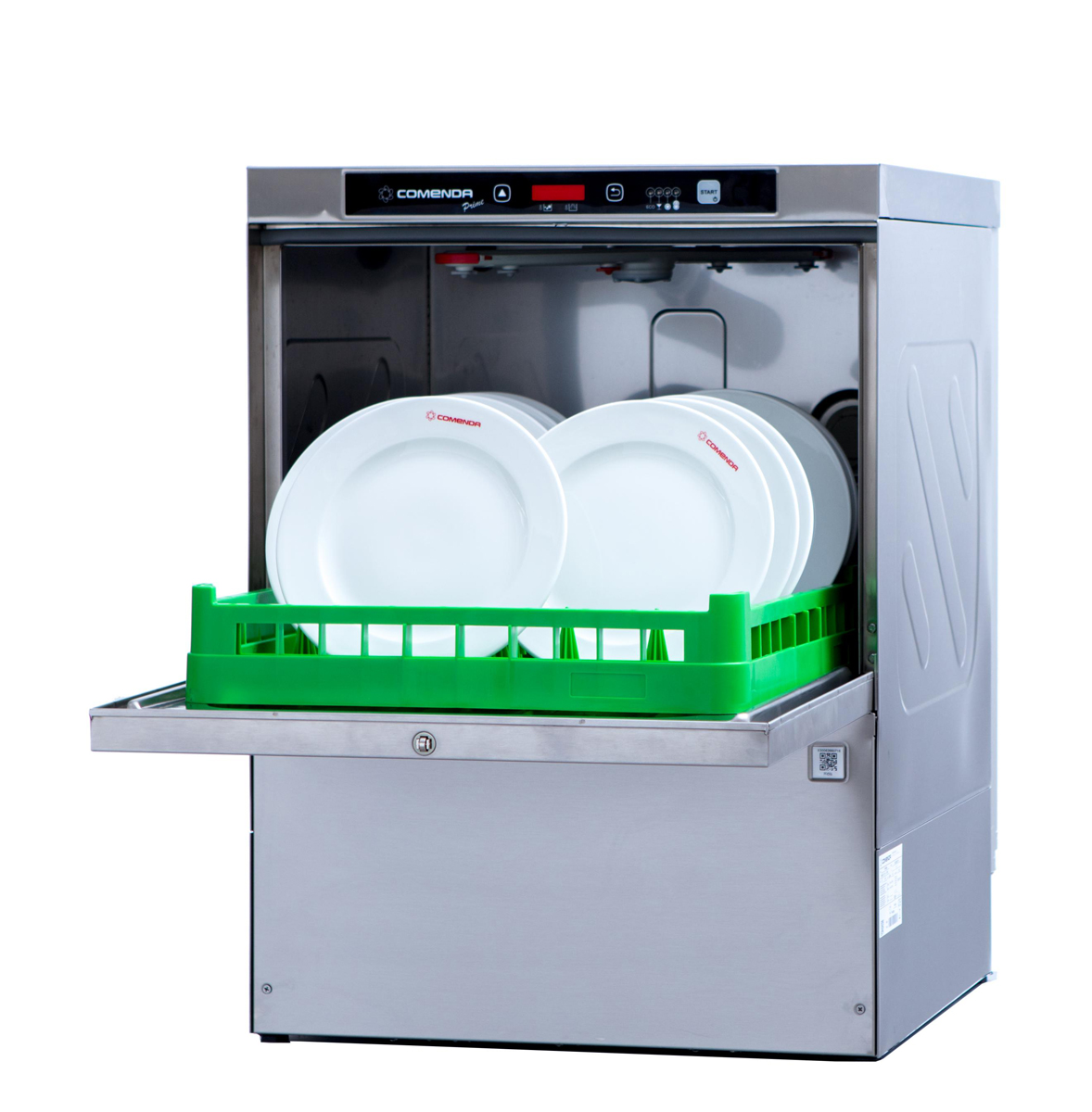
How to choose the right one
It is recommended to choose appliances based on the requirements, personal preferences and capabilities of the kitchen. Count how many people eat regularly in the family, how many dishes need to be washed, how often, once a day or a week. Measure the kitchen and dishwasher area.
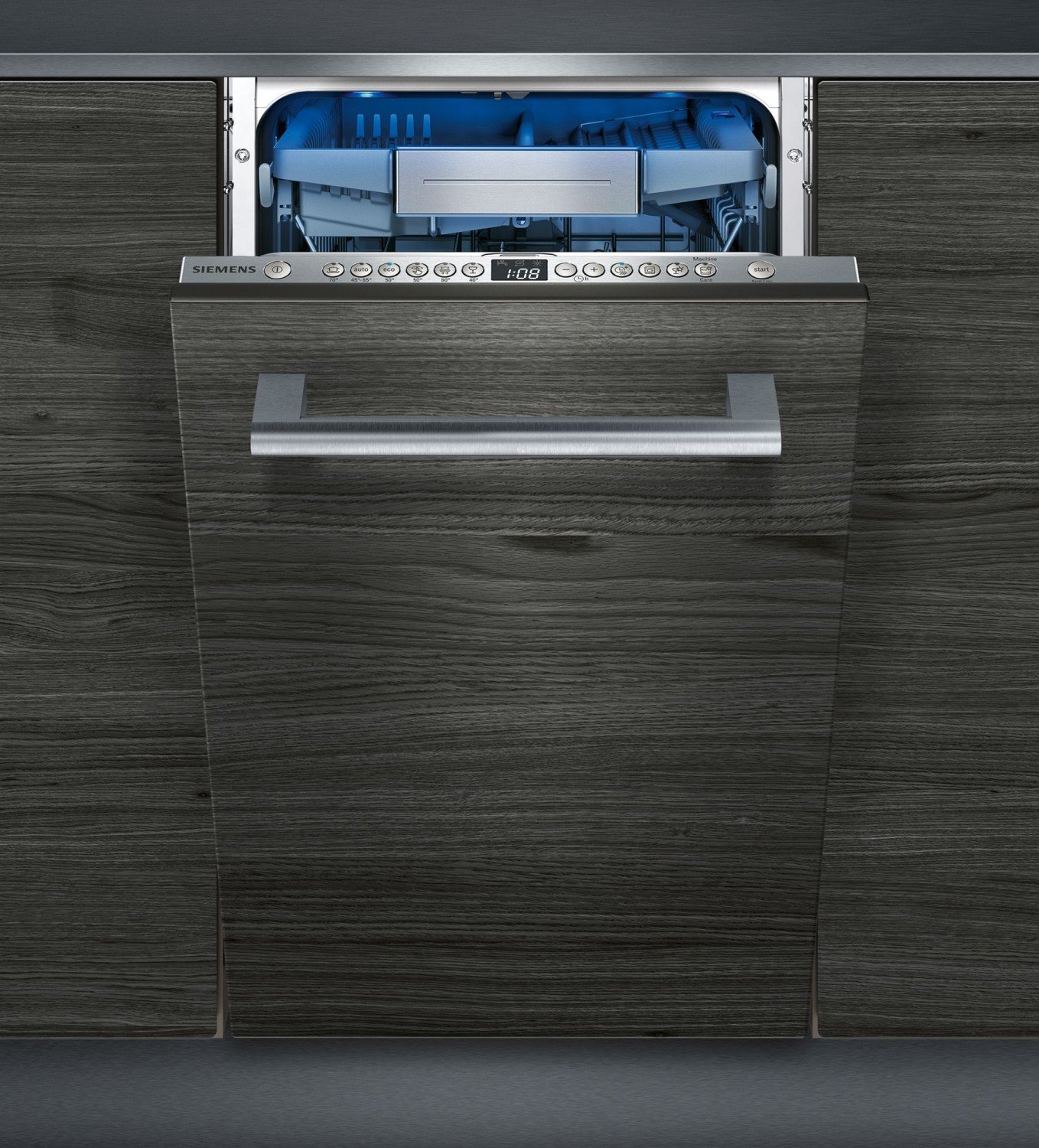
By compiling a list of your eating habits and technical requirements, you can narrow down the huge selection among appliance models to a dozen:
- By type and size. There is a "narrow" and full-size technique. Its height can be adjusted using the legs. A small basket holds 6-10 sets, and a full-size basket holds up to 15.
- Built-in and stationary. Here the conditions are dictated to you by the size of the kitchen and the area of the countertop. You need to clearly understand where the equipment will be located.
- Classic or modernized kitchen basket layout. This is solely important from a convenience point of view.The classic version has a bottom and top loading basket. The modern model is designed so that cutlery can be separately placed in a special horizontal compartment.
- Drying type. Inexpensive dishwashers dry the surface of the dishes using hot water by evaporation. In high-end machines, a turbo blower is used.
- Water and electricity consumption. The higher the class of your technique, the less it consumes resources. Check in advance the capacities and basic characteristics of the selected model.
- The control panel should be convenient and intuitive for you. Programs such as "auto-mode" and "quick wash" significantly save time and allow you to quickly solve pressing problems.
Dishwasher components
For the equipment to serve for a long time, it is important to understand how the dishwasher works. This will help you avoid common operating errors. When creating a car, various materials are used, for example, plastic, metal or stainless steel.
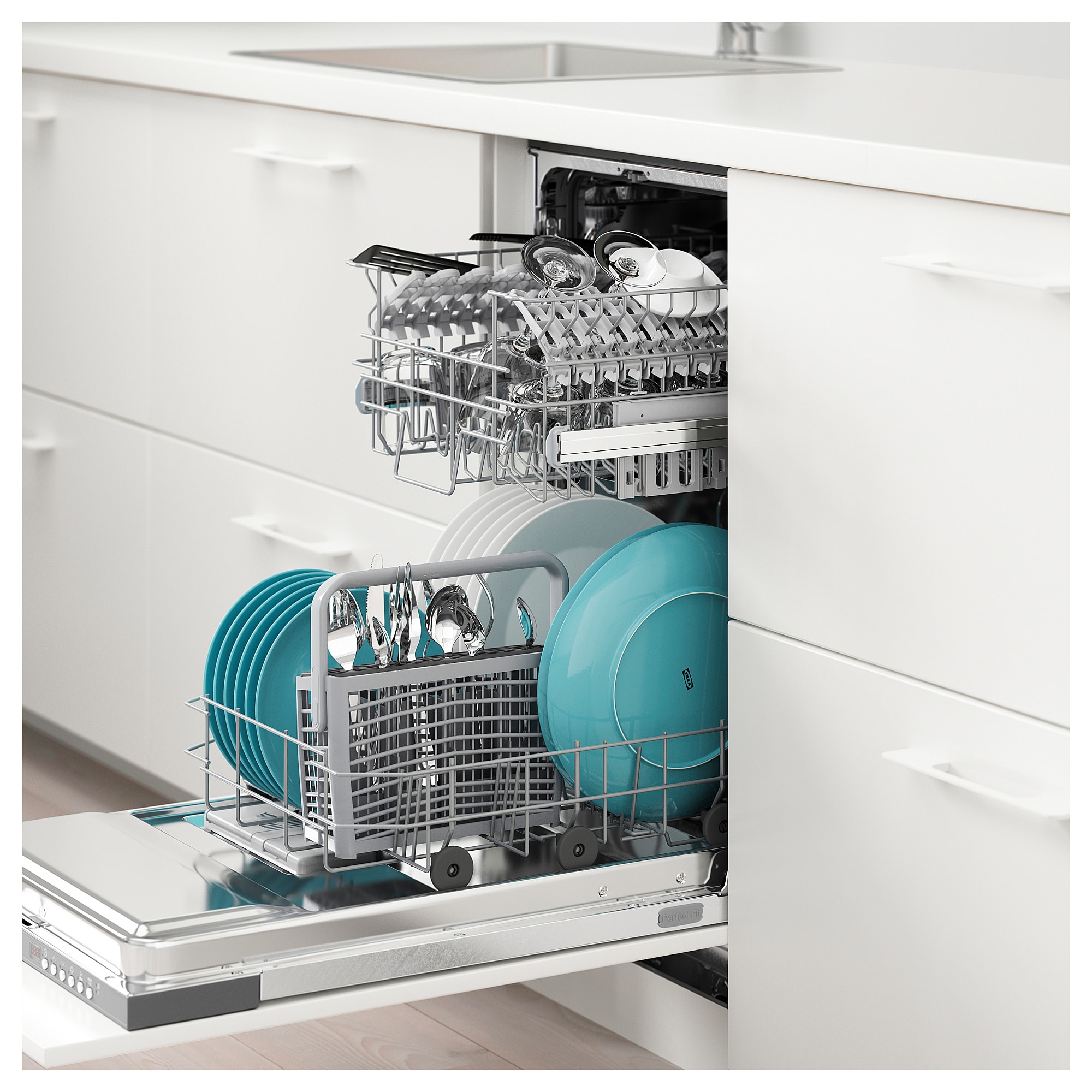
Each of them has its own advantages and weaknesses.
Dish baskets
Used kitchen utensils are placed in the basket. Under it are rotating rocker blades that supply water.
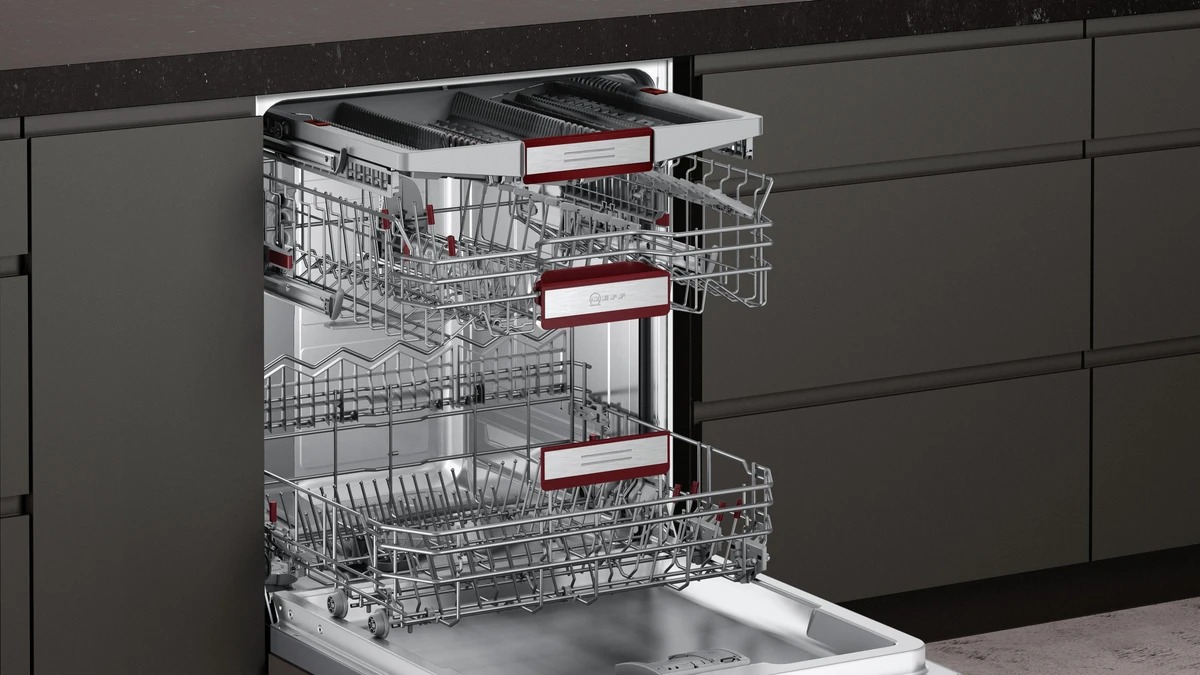
The basket is designed so that all plates and pans are optimally placed in an upright position. In the lower section, the heaviest, bulky items are located, and in the upper section, light and small in size. Light plastic is usually used as a material, but there are models with a stainless steel or other alloy basket.
Inner surface
The inner surface of the dishwasher is made of durable and wear-resistant material. It is often a metal frame that is easy to clean, clean and resistant to aggressive detergents.
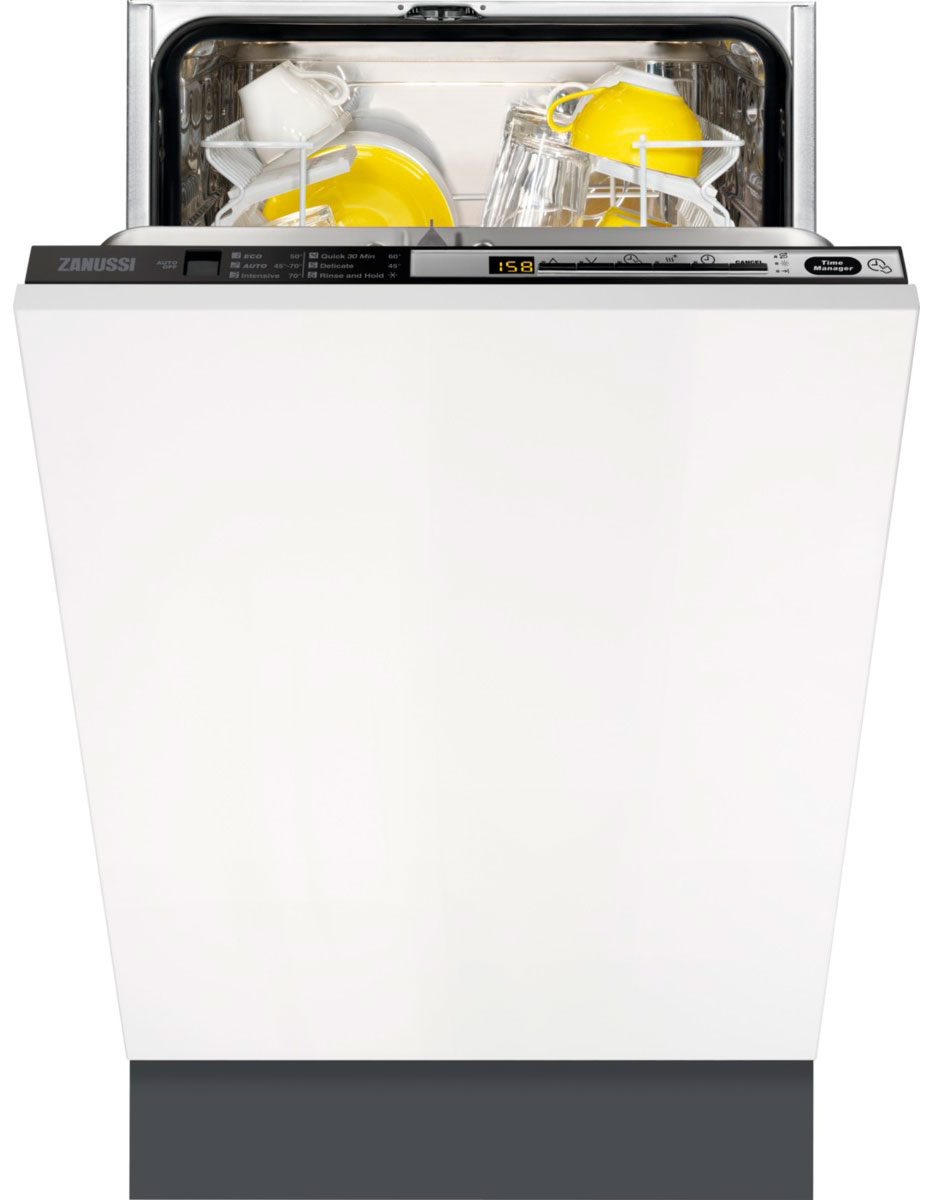
Such walls can withstand high temperatures. They will not deteriorate from moisture and moisture if you do not dry the machine between cycles.
Door
The door closes and seals the machine after loading the dishes into the basket. The front inner panel contains compartments for detergent and rinse aid. You can often hear the recommendation to fold the door and lid of the compartments for detergents in order to dry all parts well and prevent moisture from accumulating.
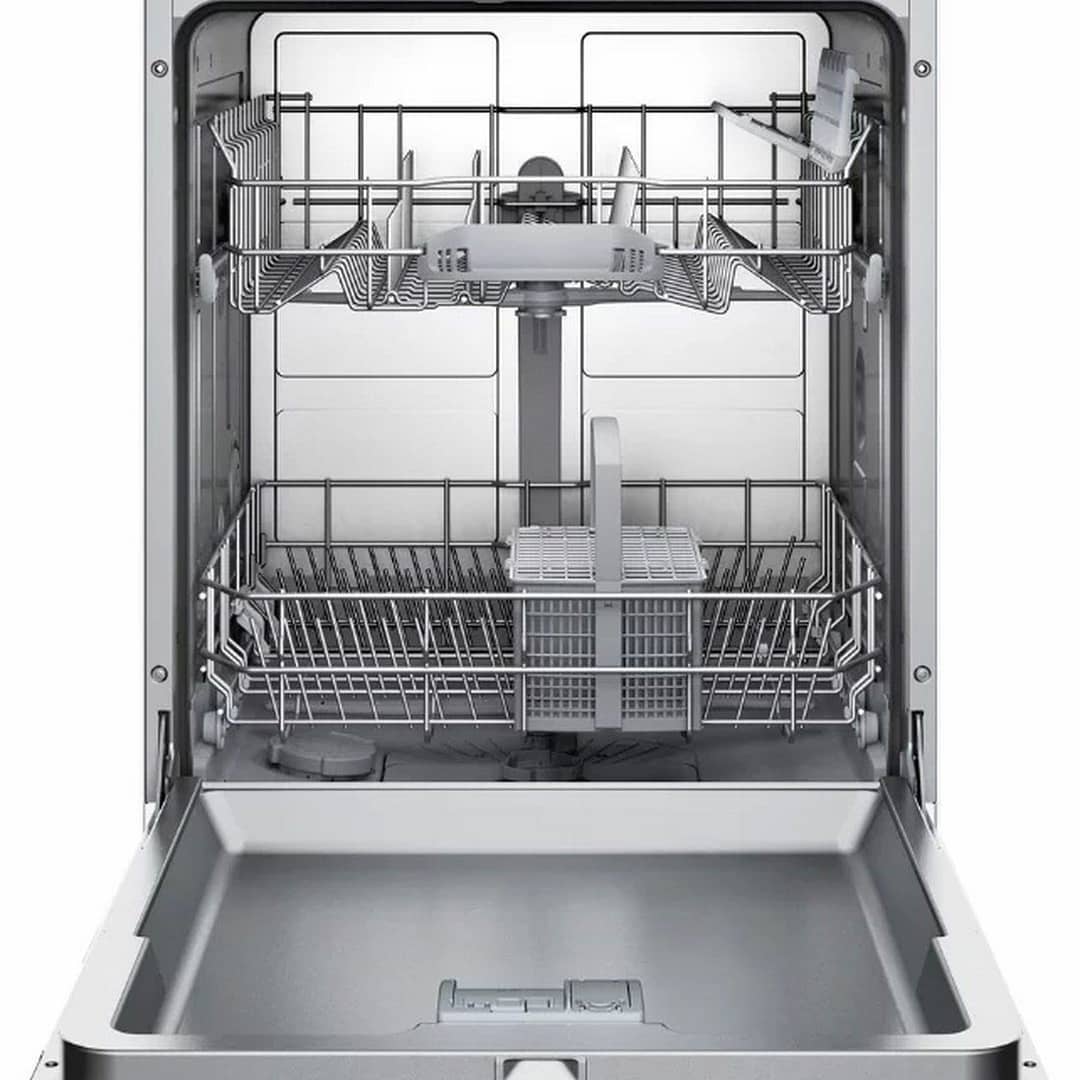
Regenerating salt container
To avoid the formation of limescale on the elements of the dishwasher from using hard tap water, special salt is used. It softens the incoming water flows and significantly increases the service life of the equipment. Dry the container after running the machine so that condensation does not form.
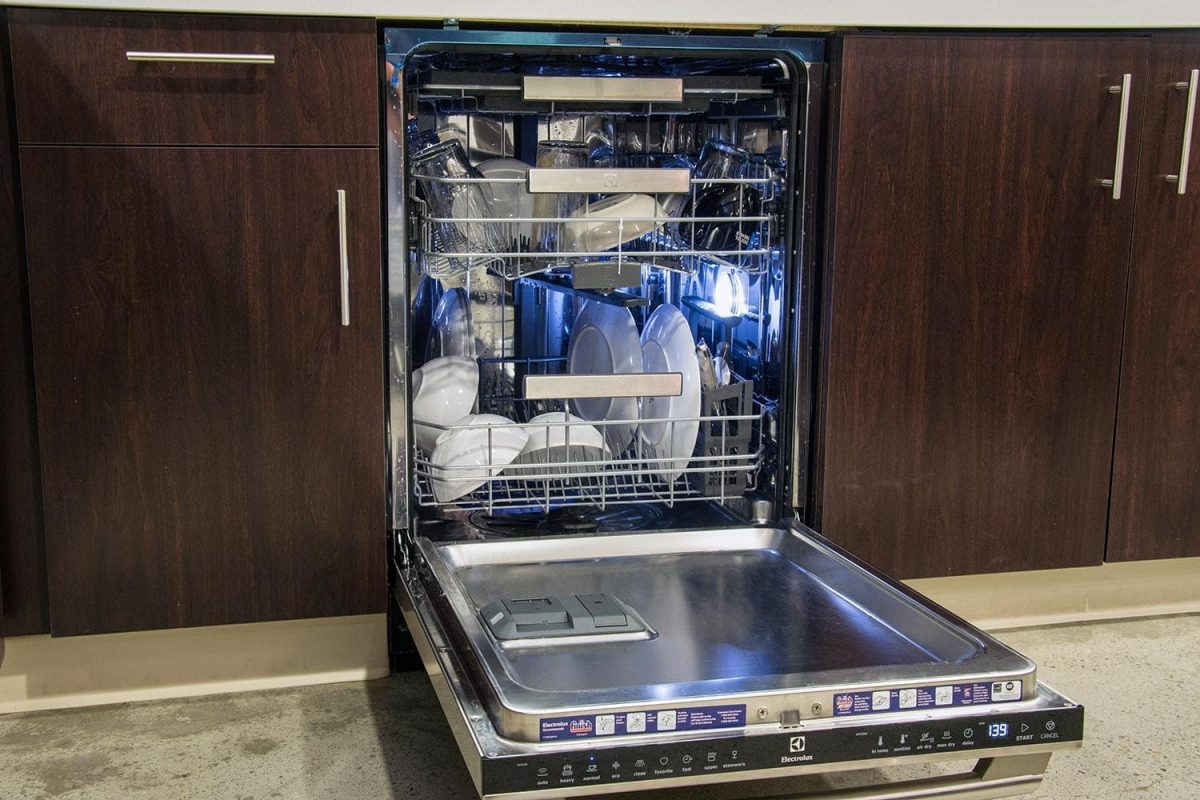
Filter system
The filtration system is located on the bottom of the dishwasher above the drain hole. This helps trap food debris, debris, and other household debris that can clog the hoses and cause serious damage.
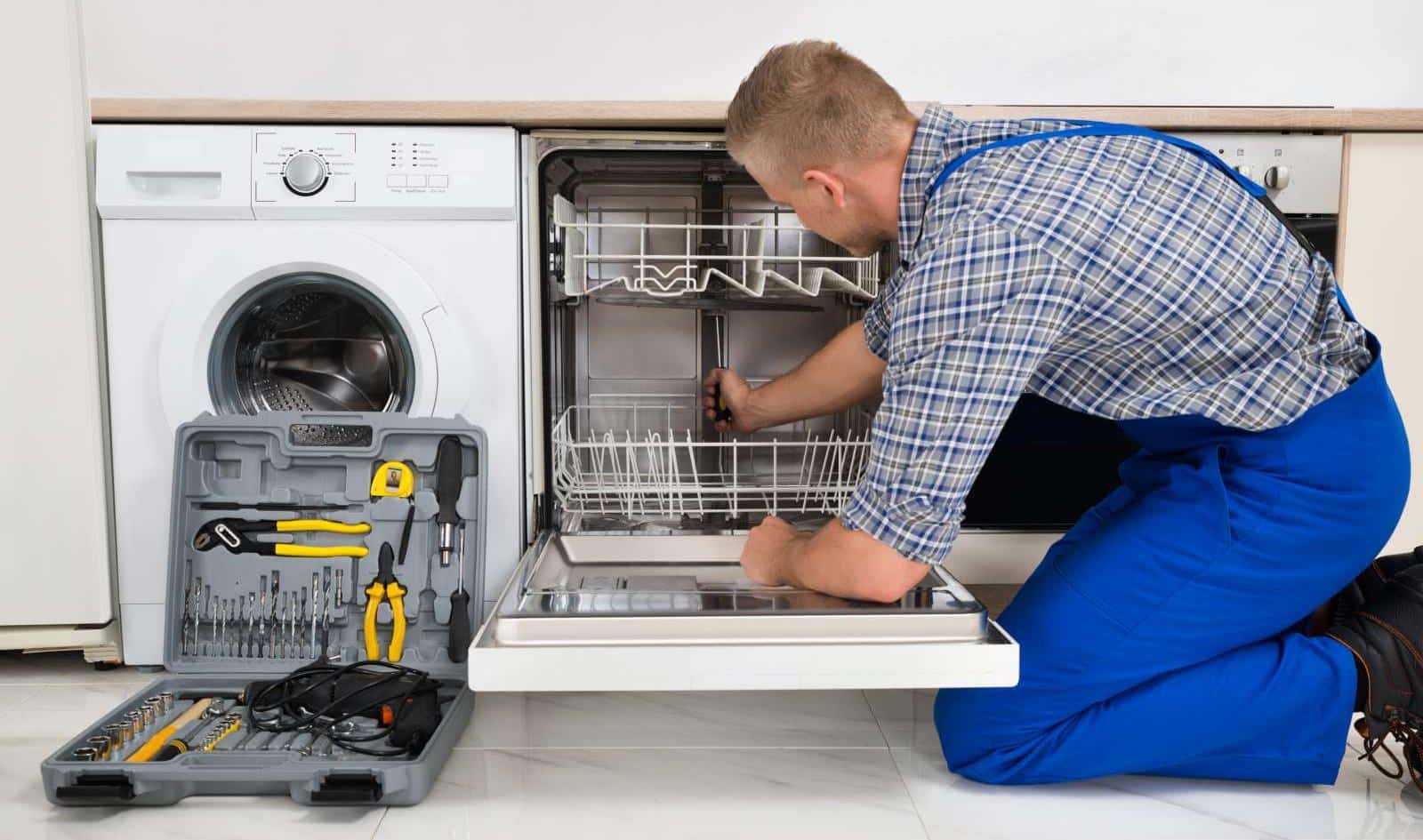
In high-end technology, filters are self-cleaning. Otherwise, you need to do it yourself at regular intervals.
Rocker arms
With the help of a rocker, water is supplied to the dishes for washing through a pressure pump. The device is located at the bottom of the machine and rotates using the reactive force of the water. The rocker arm holes can become clogged with scale over time, so inspect the parts carefully every six months and clean if necessary.

Drying system design
The turbo-dryer is powered by fans that blow hot air.All moisture is collected in a special container, and the air flows are cooled so that the dishes are cool to the touch and do not burn your hands.
The condensation drying system works by varying temperatures. After rinsing the plates with hot water, the machine condenses moisture on the cold inner walls. The flowing liquid accumulates at the bottom and is discharged through the drain pump.
Leakage protection system
The device of the anti-leakage system gives a signal about a malfunction in time, stops the working cycle and blocks the water supply. In some models, the water is automatically pumped out. This system is called AquaStop.
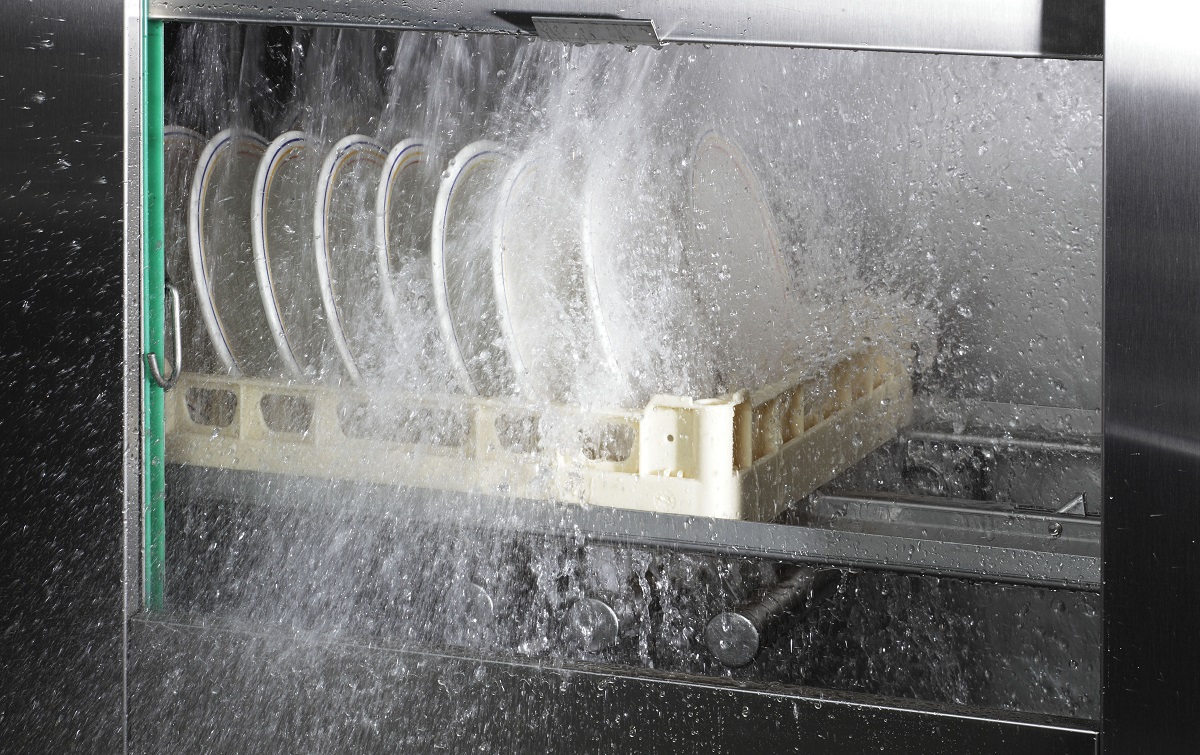
The principle of operation of dishwashers
What is the principle of operation and how long the dishwasher is washing it is important to find out before purchasing a kitchen assistant for home.
Connection
To connect the equipment, you must read the technical instructions and prepare all the necessary tools:
- building level to determine the horizon;
- screwdrivers;
- adjustable wrenches;
- drill;
- knife or scissors;
- pliers.
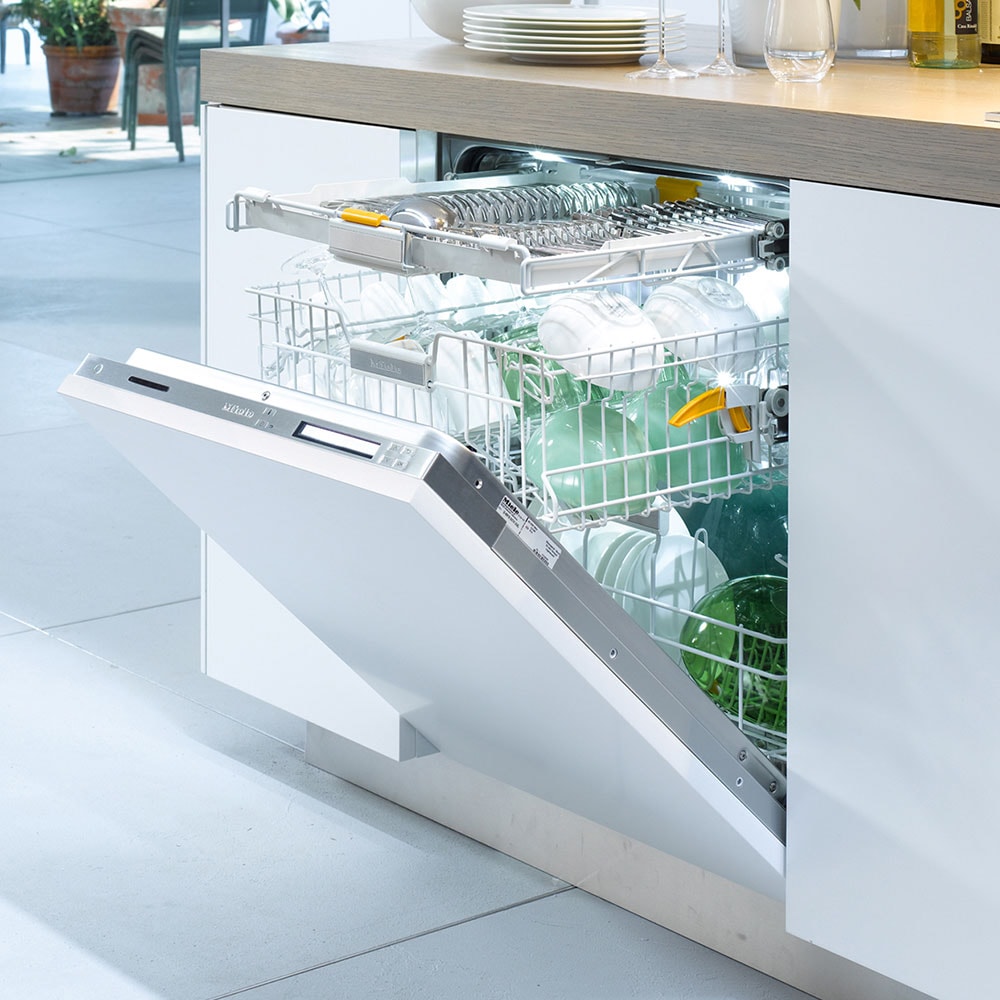
A dishwasher, how it works and how it works, affects how it is positioned in the kitchen. It should be stable and not move or bounce when starting the cycle. Then the water supply and drainage hoses are connected, the drainage system is connected and the equipment is supplied to the power source.
Water set
As soon as you turn on the machine and start the wash cycle, tap water begins to flow. Some models are connected separately to cold and hot taps, so the heating phase is skipped.
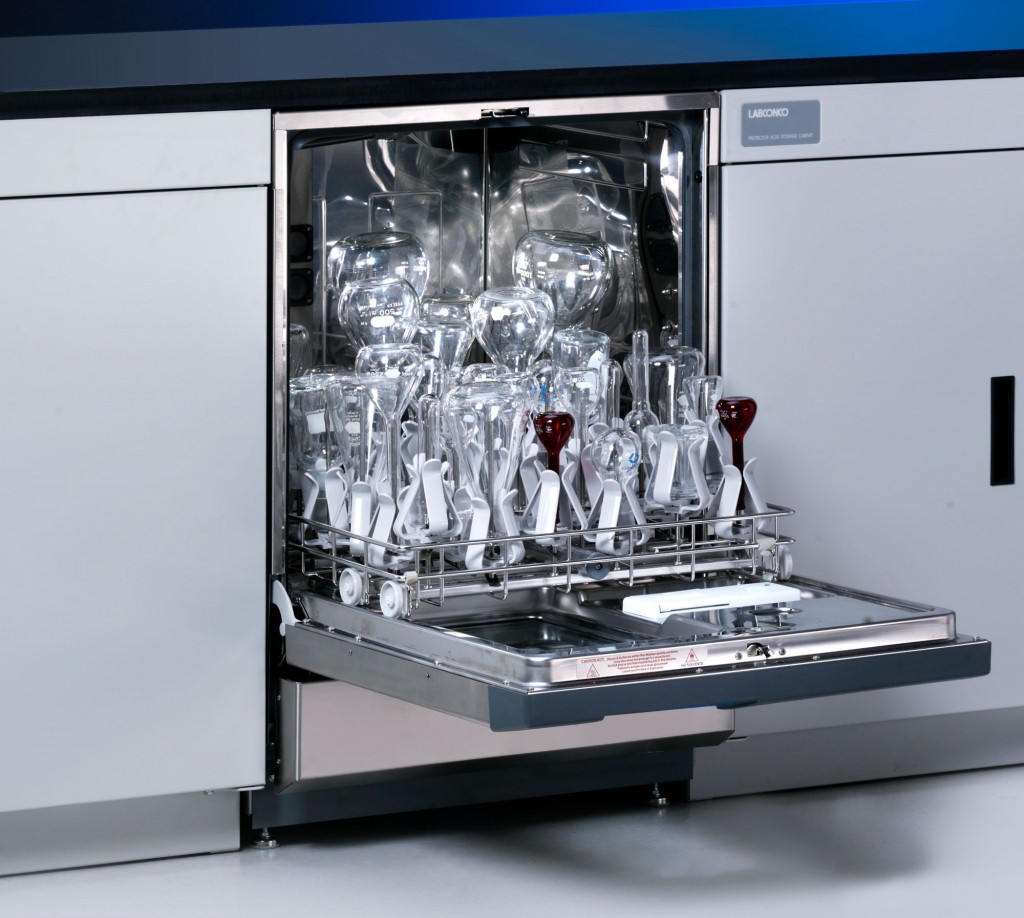
Most machines are equipped with an autonomous heating function. As it enters, the water passes through an ion exchanger where its hardness level is softened.
Soaking dirty dishes
Soaking the dishes makes the entire washing process much easier. Dried food particles can stick so tightly to the plate that they only have time to get soaked during the entire cycle. As a result, the dishes at the outlet are not clean enough.
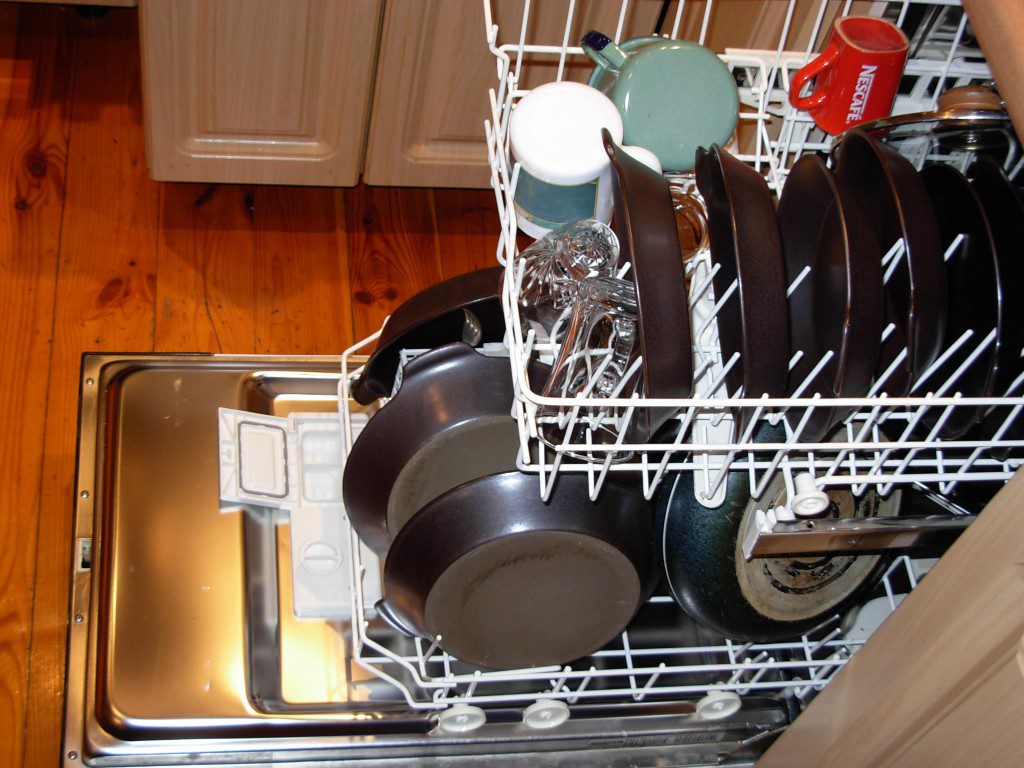
Dried food softens during soaking. And at the next stage, all the dishes are washed with high quality and thoroughly.
Washing process
The water supplied through the hose mixes with the detergent along the way. Through the rocker arms, the mixture is sprayed onto the surface of the plates and pans. The blades of the spray gun rotate under the pressure of the jets and pour the cleaning liquid on the dishes from all sides.
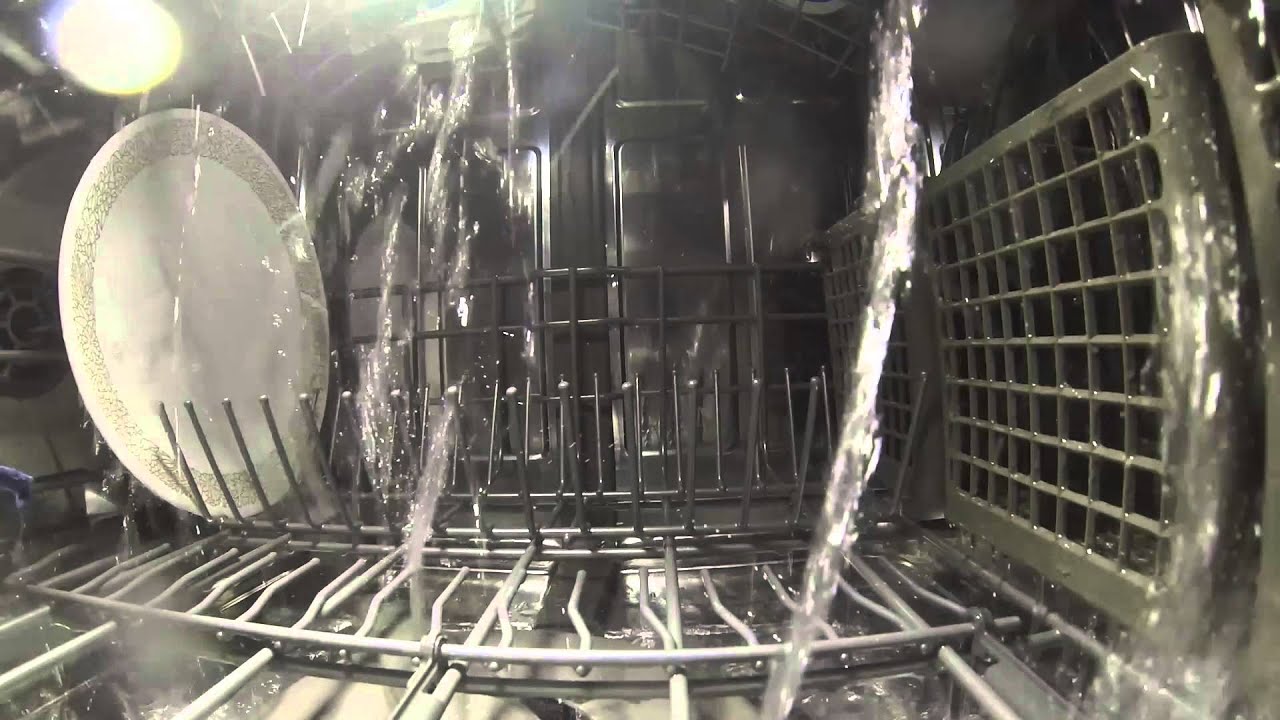
This is how the washing process takes place, which gradually removes grease, food and drink residues from kitchen utensils.
Rinsing
After the washing process, the rinsing phase begins. It is important to thoroughly rinse the detergent off the surface of the dishes so that it does not end up in the food later. This is done with a balm. The multi-level rinsing process, first with a special rinse aid and then with clean water, makes the dishes absolutely clean and ready to use.

Drying dishes
Drying saves you the hassle of wiping dishes or leaving them on the table to dry completely. Depending on the model selected, moisture on the surface of your service will evaporate or condense. When the drying process has come to an end, do not remove the dishes immediately. Let it cool down completely.

Dishwasher safe items
There are a number of rules that must be strictly followed. Not every dish can be put into a washing machine. This could damage the product and damage the interior of the machine.
- Wood products, cutting boards, cups and spatulas are not dishwasher safe. The surface may crack and deteriorate permanently.
- Aluminum and cast iron dishes are also not designed for this type of washing. This can lead to cracking and darkening.
- Place your kitchen knives correctly. Make sure they are securely fastened, otherwise the inside of the machine could be damaged.
- Fine crystal and porcelain items are also best hand washed. The delicate surface of such dishes is easy to deteriorate under the influence of detergents and temperature extremes.
- Avoid placing items with sharp, cutting edges, such as graters and strainers, into the basket.
- Read the recommendations carefully when shopping for kitchen accessories. Check in advance if they are dishwasher-safe.
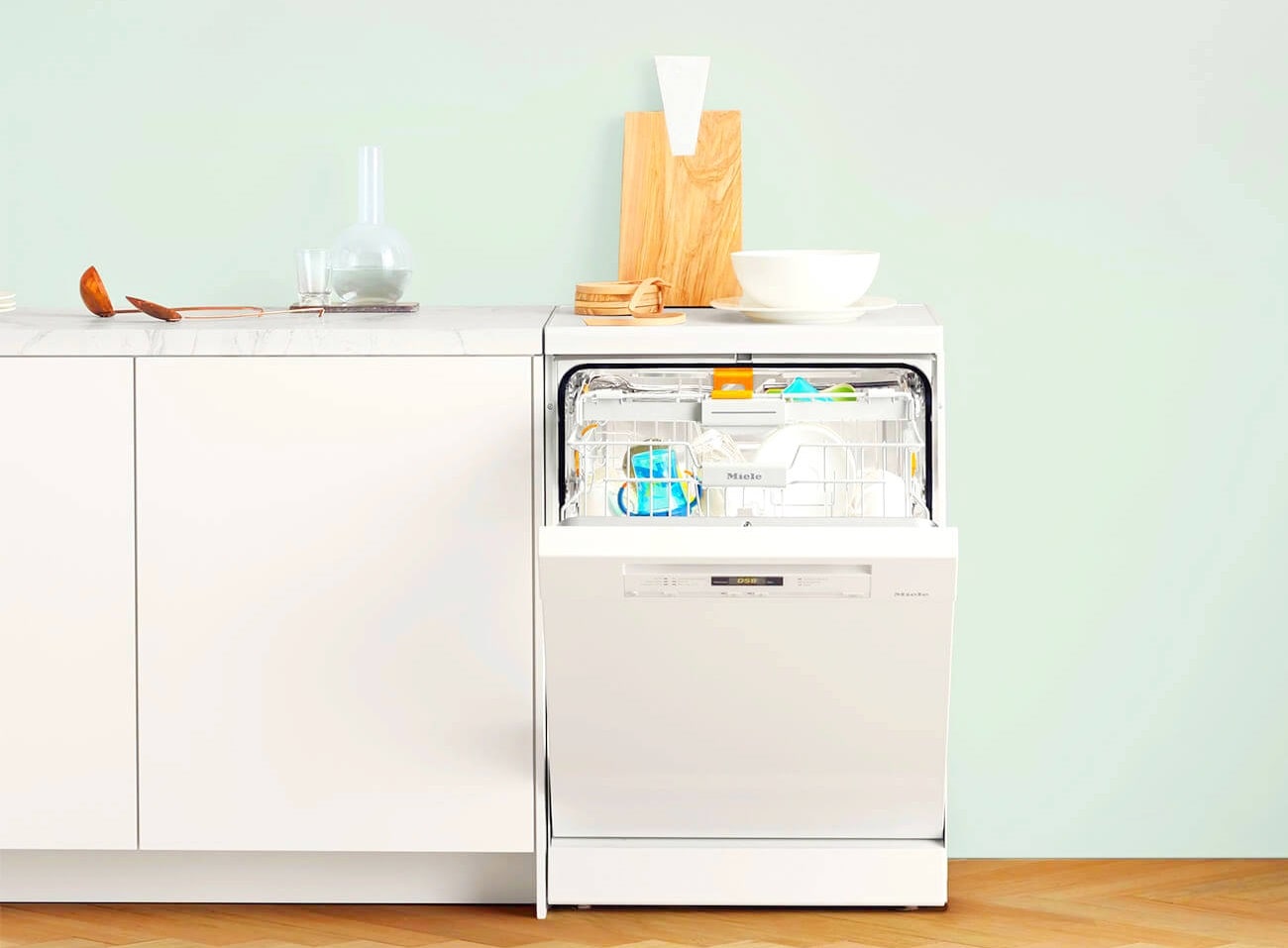
The nuances of the dishwasher
You need to use the dishwasher correctly, following the recommendations for use. Careful handling of equipment allows it to serve for decades without a single breakdown.
How hard can you load
The quality of the sink directly depends on how much and how you loaded the dishes. Leave gaps between the plates so that water can easily penetrate into the most inaccessible places. Place glasses and glasses upside down for maximum cleaning. An overloaded dishwasher is not performing well. Some of the dishes may be left with food debris and not clean enough.
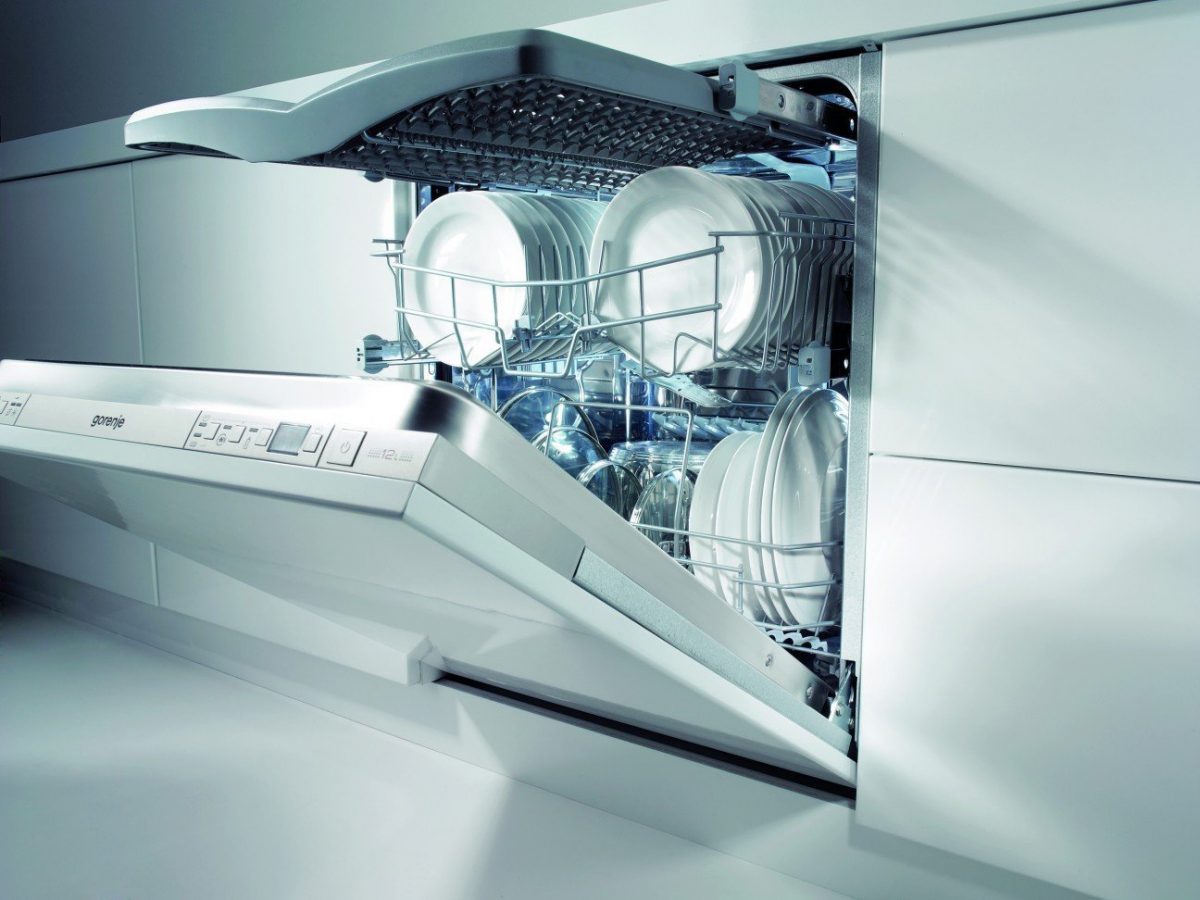
A half-loaded car is not as bad a problem as overloading. If you still haven't collected the required amount of dirty utensils in a day, you can run the cycle with an incomplete load. But you shouldn't be too often with this. Try to follow the rules.
How long does it take to wash the dishes
The duration of the wash cycle directly depends on the program you choose.
- If there is a lot of dirty dishes, and you choose pre-soaking, then the process will increase by 10-25 minutes.
- The higher the water heating temperature in the set program, the longer it will take to complete the entire cycle. On average, it takes up to 20 minutes extra.
- The wash cycle is shorter without drying. Consider this if you are very limited in time.
- The instructions indicate all stages of washing. Each procedure takes a certain amount of time and it will be easy for you to calculate the duration of the entire cycle.
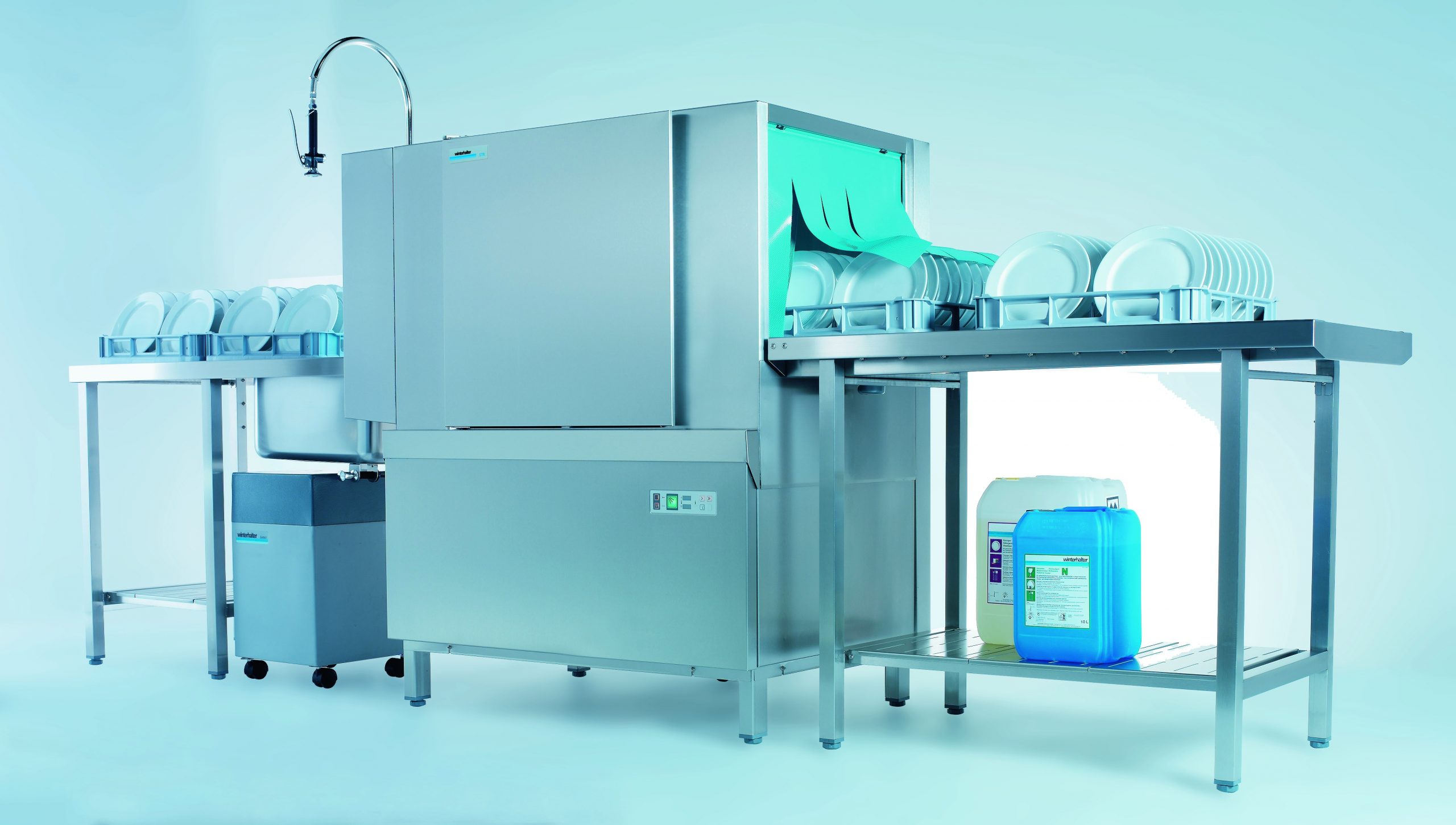
The dishwasher saves the owners from many problems. But it is worth paying close attention to any little things during the operation of the equipment. And in case of a malfunction, immediately contact the service center.
Video: the principle of the dishwasher

